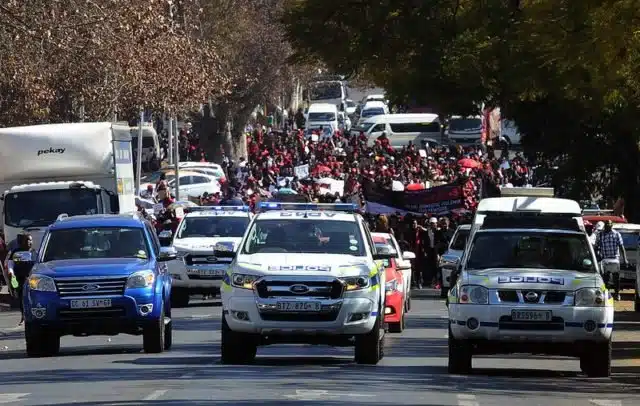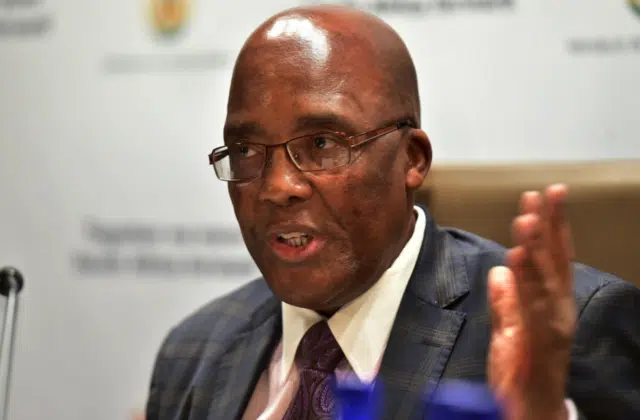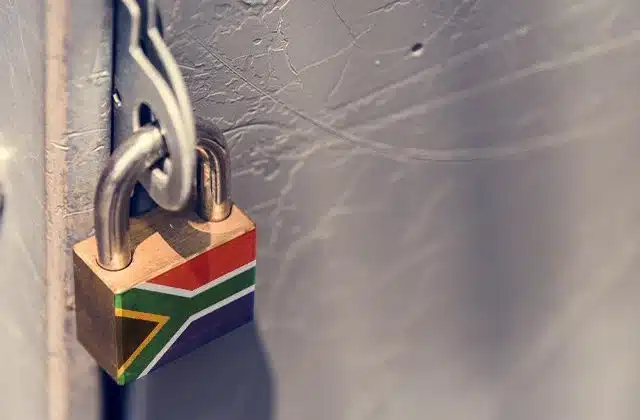
Mass strike action on the cards for South Africa
The SA Transport and Allied Workers Union (Satawu) threatens major strike action on Monday, with as many as 21,000 workers expected to take part unless a new wage deal is struck with Transnet, the state owned transport and logistics group.
Satawu, along with the United National Transport Union (Untu), have already rejected an initial 1.5% offer and a revised offer of 4% and promise “to plunge Transnet into industrial action that could have serious repercussions for the economy,” reports the Sunday Times.
The unions said that the offer must be aligned with the rising cost of living and current inflation. Annual inflation in South Africa is currently 7.6%.
The strike action threatens to curb trade in materials including coal, iron ore, chrome and manganese because the company’s rail and ports network is key to South African exports of bulk commodities, reported Bloomberg.
The South African ports are also crucial for shippers from other African nations, it said.
Transnet moved to declare a force majeure at its ports in anticipation of some of its operations being “scaled down,” the state-owned company said in a notice to its customers.
“To the extent possible, we will attend to invoke contingency plans and source external stand-in/temporary resources to ensure that the operations continue across the various terminals.”
As a full-blown strike seems unavoidable at this stage, Transnet warned a strike would have a serious effect on the economy and implored the unions to reconsider, the Sunday Times said.
“Fruit exporters have pleaded with the government to intervene as a strike would halt exports and put thousands of jobs on the line.”
On Monday, the parties will meet at the Commission for Conciliation Mediation and Arbitration (CCMA), which has been brought in to try to broker a solution through meditation.
Satawu said it will not accept anything below two digits but is still open to talks.
“We have served Transnet with a 48-hour notice of our intention to strike, and our strike starts Monday. The company requested a meeting with us last Tuesday, where they tabled their so-called revised offer of 4%. This offer is divided into two — a 3% across the board increase and one percent in the form of a lump sum equivalent to R7,600,” secretary-general Jack Mazibuko told the Business Times.
“We took this offer to our members for a mandate, but it was strongly rejected, and that’s why we are here now.”
Mazibuko said that employees at Transnet Freight Rail, including all ports in the country, security, pipelines, train drivers, and operations will be on strike come Monday.
He said Satawu received a letter from the CCMA requesting a meeting to try to find a solution and avert the strike, which will also severely disrupt key mineral exports.
“We will be attending that meeting, but we want to remind the CCMA that they don’t have the power to take away workers’ rights to embark on a strike. We are asking for 13.5%, but we are prepared to accept from 10% — not anything below double-digit, no,” said Mazibuko.
State employee wage burden
Bloomberg reported the remuneration of South African state employees accounts for almost a third of total government spending and keeping it in check is key to the National Treasury’s plans to rein in its budget deficit and bring runaway state debt under control.
And acting minister of Public Service and Administration (DPSA), Thulas Nxesi and finance minister Enoch Godongwana believe that a 3% salary increase offered to public servants is “generous”.
This as a deadlock persists in wage negotiations with labour unions. The ministers said the current round of negotiations commenced with the government.
Government, they said, is grappling with a “balancing act” between wage increases and additional headcounts, saying “there’s always competition” between the two.
“Higher than inflationary or unaffordable adjustments on the salaries of the current public servants would mean that there’ll be less money available to increase headcounts in critical frontline services.
“The State capacity in Education, Police and Health has not been increasing in line with the growing population over the years, while wages have increased by an average of 2% above CPI between 2008/09 and 2019/20.”
As an example, the ministers said, the average number of learners per teacher in public ordinary schools decreased from a ratio of 32.3 in 2015/16 to 31.4 in 2021/22, while the number of police officers per 100,000 population decreased from 260 to 236 during the same period.
The number of nurses per 100,000 uninsured population also decreased in this period.
“It is for this reason that additional allocations amounting to approximately R50 billion over the 2022 MTEF were made available to Education, Police and Health to address the wage bill spending and service load pressures.
“Therefore, it becomes imperative that the current and future wage agreements strive to strike a balance between remuneration increases and the need for additional headcounts in frontline services in order to keep up with the increasing demand for public services.”
Labour union demands
Initially, unions demanded a 10% across-the-board increase for this financial year. If acceded to, it would have cost government around R49 billion.
The ministers said the government proposes that employees continue to be paid a non-pensionable cash gratuity, an average of R1,000 after tax to all employees across salary levels 1-12.
“This amounts to an average of 4.5% of the R20.5 billion allocated for salaries in the 2022/23 compensation budget. Organised labour rejected this offer.
Employer’s current and final offer
And following several improved offers and rejections from unions, the government’s offer on the table is as follows:
A 7.5% increase offer packaged as follows:
- The continuation of the current non-pensionable cash allowance of R1,000 for this financial year across all salary levels; and
- A pensionable increase of 3% across the board.
“We have continued to ensure that public servants are reasonably cushioned against the rising cost of living, without crowding out social expenditure. It is a difficult balancing act. Therefore, the misinformation being peddled by some unions in the media is not only unfortunate but also very opportunistic and disingenuous,” the ministers said.
Read: South African ports operator declares force majeure over strike



